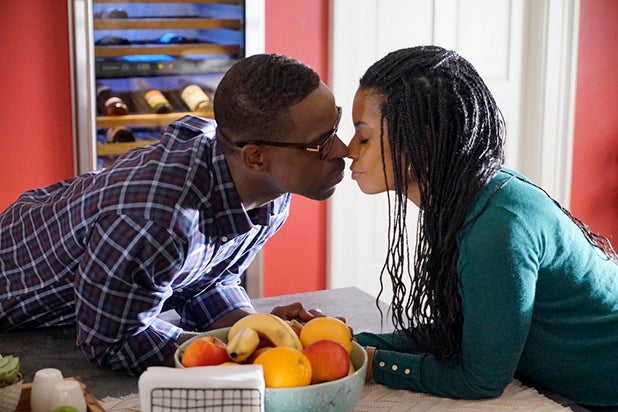
“I told my son to hold off dating black girls,” a coworker announced in the office. Dave*, a father of teenage boys, had just finished telling us how a white female classmate had come to visit his oldest over the holiday break. His son had taken her to a fast-food restaurant before she went home, and he insisted a black girl would not have been OK with such a simple date.
To my surprise, the other black men in the room felt emboldened to chime in and agree that dating white women is “easier.” In an hour-long conversation, these educated brothas gleefully juxtaposed the easygoing, up-for-whatever white woman with the uptight, demanding black woman.
Perhaps they spoke from lived experience, but it’s possible the caricatures of black women in media inform their generalizations as well. For example, Tasha on Power holds Ghost down, but she also wants him to remain a drug dealer. And we know Cookie loves Lucious on Empire, but their relationship is contentious at best. This is why the character Beth on the hit NBC show This Is Us is such a breath of fresh air.
On the show, Beth (the amazing Susan Kelechi Watson) is married to Randall Pearson (breakout actor Sterling K. Brown.) They have two young girls and a relationship that is built on trust, mutual respect, and support. In her, I see the women who raised me and the examples they provided of how to be a loving partner — women who completely shatter the stereotypes our male counterparts insist are the norm.
Subscribe to our daily newsletter for the latest in hair, beauty, style and celebrity news
I saw it in Episode 2, where Randall is out of sorts after finding his biological father. William is a former drug addict who left his son at a fire station, and Beth is concerned about his motives now that he’s back in Randall’s life.
“Randall is not free of vice, William. His vice is his goodness,” she says. “It’s his compulsive drive to be perfect. That’s why I love him. But it’s also why I have to protect him sometimes, you know? So now I’m gon’ have to ask you a couple questions. Questions he will probably be too polite to ask himself.”
Beth shows us she sees the very best in her husband. She is mama bear, keeping her family safe from an intruder who might mean harm.
In Episode 3, Randall learns that he has re-entered his father’s life after the man has received a terminal cancer diagnosis. He is brought to tears at the missed opportunity, but Beth, in the most tender moment, encourages him to take advantage of whatever time he has left to connect with his dad. She gently wipes his tears away; she is his pillar.
It reminded me of my last trip home for Christmas. My dad bounded downstairs and flopped on the couch as my mother was cooking breakfast. She poured a glass of orange juice and said, “Honey, I need you to drink this for me.” My dad insisted he could drink it while lying down, but she coaxed him upright and helped him drink. “When you’re done, please go check your blood sugar,” she patiently said. As his partner, she had come to know the signs of his diabetes was being mismanaged. Without admonishing him or aggravating the situation, she acted quickly to avert a crisis.
It’s not all honey and roses, we know that. There are times when you will disagree with your partner. In Episode 5, Beth thinks she might be pregnant again. Randall tells her it would ruin his early retirement plans, and she can’t help but hold his selfishness up to the light.
“Who has two hands and was about to go back to work full time and maybe, maybe start to remember who she was? But now will have to split her time between a diaper station and a home office? This girl.” She is frustrated by his insensitivity and stands up for herself, but she does not tear him down in the process. Even their conflicts on this show are goals!
I was raised in a two-parent household, where my mom routinely performed gestures I didn’t quite understand as a child but that suggested deference to her husband, acts like fixing his plate and, yes, making sure he got the big piece of chicken. (Shout-out to Chris Rock!)
This extended to all the women who raised me, from the stern yet selfless ones in church, to the older cousin who made sure the kids didn’t eat her boyfriend’s favorite cereal the morning after we spent the night. Was there drama I didn’t see? I’m sure! But I have far more examples of Corinthians 13 black women than whatever sistas have the brothas out here so bitter.
So I’m grateful for the representation on network television of Beth on This Is Us and Rainbow on Black-ish. May their reflections encourage us to keep loving like we do!
